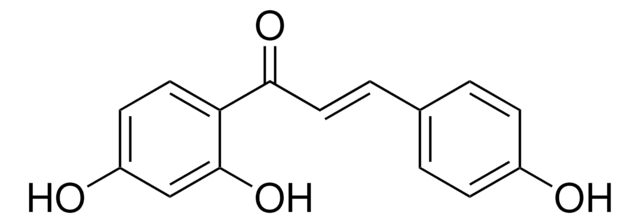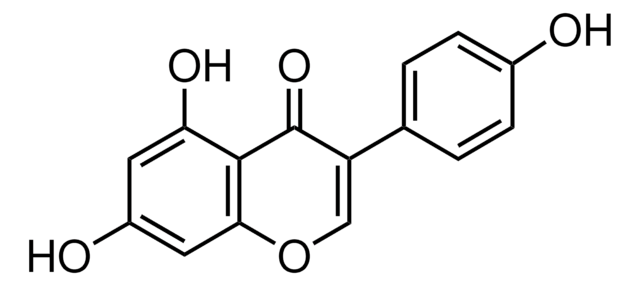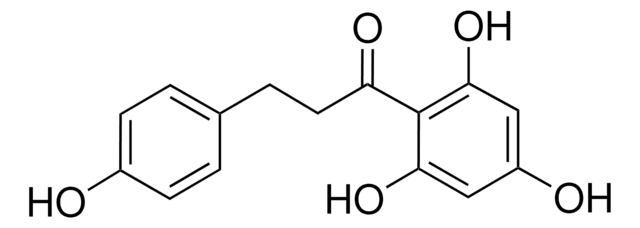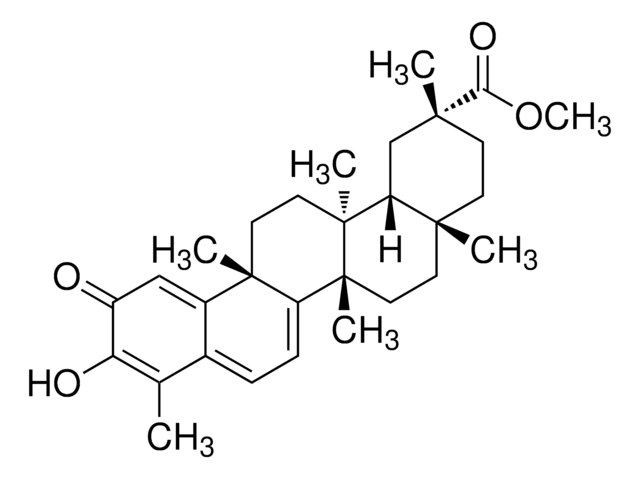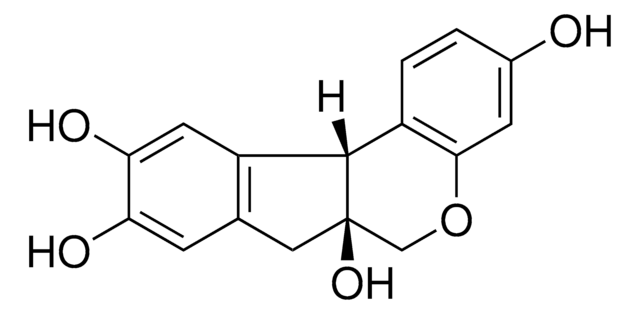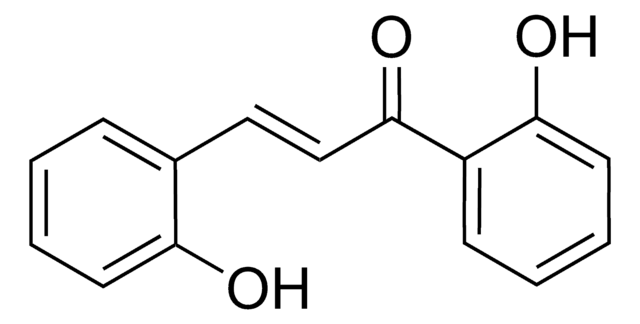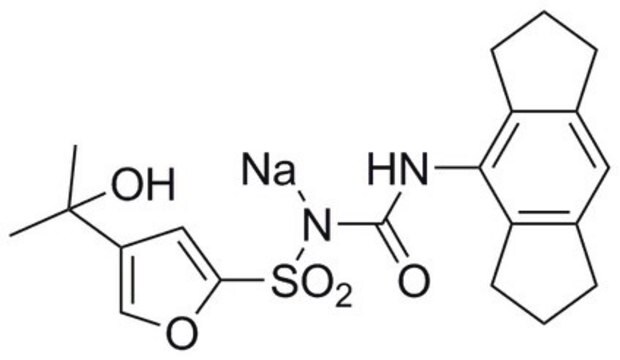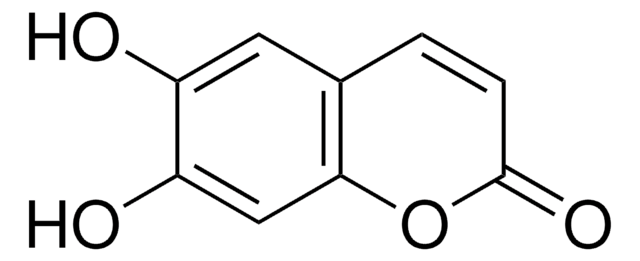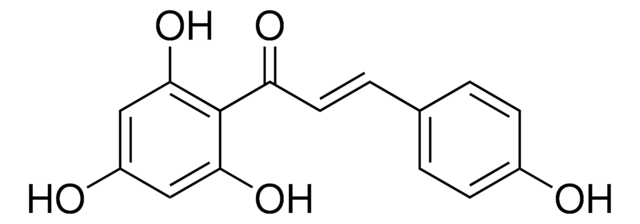I3766
Isoliquiritigenin
powder
Synonym(s):
(E)-1-(2,4-Dihydroxyphenyl)-3-(4-hydroxyphenyl)-2-propen-1-one, 4,2′,4′-Trihydroxychalcone
About This Item
Recommended Products
form
powder
Quality Level
color
yellow to orange
solubility
H2O: <0.1 mg/mL
methanol: 10 mg/mL
DMSO: 20 mg/mL
storage temp.
2-8°C
SMILES string
Oc1ccc(cc1)\C=C\C(=O)c2ccc(O)cc2O
InChI
1S/C15H12O4/c16-11-4-1-10(2-5-11)3-8-14(18)13-7-6-12(17)9-15(13)19/h1-9,16-17,19H/b8-3+
InChI key
DXDRHHKMWQZJHT-FPYGCLRLSA-N
Gene Information
rat ... Alox5(25290)
Looking for similar products? Visit Product Comparison Guide
General description
Application
- as a bone morphogenetic protein (BMP) agonist in zebrafish embryos
- as a guanylyl cyclase activator in zebrafish embryos
- to test its antitumor and antiviral effects against Epstein-Barr virus-associated gastric carcinoma
Biochem/physiol Actions
Features and Benefits
Caution
Storage Class Code
11 - Combustible Solids
WGK
WGK 3
Flash Point(F)
Not applicable
Flash Point(C)
Not applicable
Personal Protective Equipment
Certificates of Analysis (COA)
Search for Certificates of Analysis (COA) by entering the products Lot/Batch Number. Lot and Batch Numbers can be found on a product’s label following the words ‘Lot’ or ‘Batch’.
Already Own This Product?
Find documentation for the products that you have recently purchased in the Document Library.
Customers Also Viewed
Articles
Cyclic nucleotides like cAMP modulate cell function via PKA activation and ion channels.
Our team of scientists has experience in all areas of research including Life Science, Material Science, Chemical Synthesis, Chromatography, Analytical and many others.
Contact Technical Service
